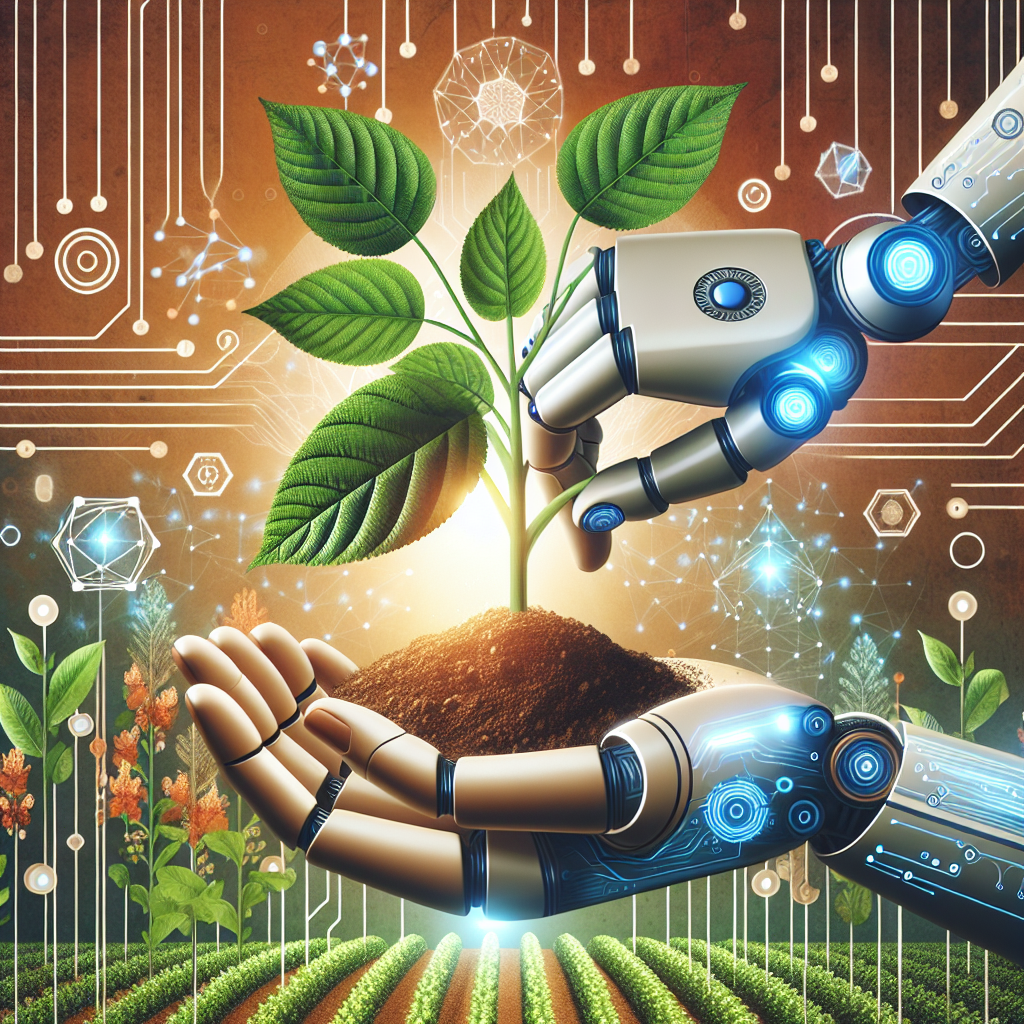In recent years, the agriculture industry has seen significant advancements in technology, with the introduction of artificial intelligence (AI) being one of the most impactful. AI has the potential to revolutionize the way we approach sustainable agriculture, improving efficiency, productivity, and environmental sustainability. By leveraging AI, farmers can make more informed decisions, optimize resource use, and ultimately increase their yields while reducing their environmental impact.
One of the key ways in which AI can benefit sustainable agriculture is through precision agriculture. Precision agriculture involves using technology to monitor and analyze data on factors such as soil conditions, weather patterns, and crop health in real-time. By collecting and analyzing this data, farmers can make more informed decisions about when to plant, water, and harvest their crops, leading to higher yields and reduced waste.
AI can also be used to optimize resource use on the farm. By analyzing data on factors such as soil moisture levels, crop health, and weather patterns, AI can help farmers make more efficient use of water, fertilizer, and pesticides. This not only reduces costs for the farmer but also helps to protect the environment by minimizing the use of harmful chemicals.
Another way in which AI can benefit sustainable agriculture is through the use of drones and other autonomous vehicles. These technologies can be equipped with sensors and cameras to collect data on crop health, soil conditions, and other factors. By analyzing this data, farmers can identify areas of the field that need attention and take action more quickly, leading to higher yields and reduced waste.
AI can also help farmers to better predict and manage pests and diseases. By analyzing data on factors such as weather patterns, crop health, and pest populations, AI can help farmers to identify potential outbreaks before they occur and take action to prevent them. This not only reduces the need for harmful pesticides but also helps to protect the environment and human health.
In addition to these benefits, AI can also help to improve the sustainability of agriculture by reducing waste and improving supply chain efficiency. By analyzing data on factors such as market demand, transportation costs, and storage conditions, AI can help farmers to better plan their harvests and reduce food waste. This not only benefits the environment by reducing greenhouse gas emissions from food waste but also helps to improve food security and access for consumers.
Overall, leveraging AI for sustainable agriculture development has the potential to benefit farmers, consumers, and the environment. By making use of advanced technologies such as AI, farmers can increase their yields, reduce their environmental impact, and improve the efficiency and sustainability of their operations.
FAQs:
1. What is AI in agriculture?
AI in agriculture refers to the use of artificial intelligence technologies such as machine learning, deep learning, and computer vision to improve farming practices and optimize resource use. By analyzing data on factors such as soil conditions, weather patterns, and crop health, AI can help farmers to make more informed decisions and increase their yields while reducing their environmental impact.
2. How does AI benefit sustainable agriculture?
AI benefits sustainable agriculture by enabling farmers to make more informed decisions about when to plant, water, and harvest their crops, optimizing resource use, and reducing waste. By analyzing data in real-time, AI can help farmers to identify areas of the field that need attention and take action more quickly, leading to higher yields and improved environmental sustainability.
3. What are some examples of AI technologies used in agriculture?
Some examples of AI technologies used in agriculture include drones equipped with sensors and cameras to collect data on crop health and soil conditions, machine learning algorithms to analyze data on weather patterns and pest populations, and computer vision systems to monitor crop growth and detect diseases. By leveraging these technologies, farmers can make more informed decisions and improve the efficiency and sustainability of their operations.
4. How can farmers implement AI in their operations?
Farmers can implement AI in their operations by investing in technologies such as drones, sensors, and machine learning algorithms, and by working with AI experts and consultants to analyze data and develop AI solutions tailored to their specific needs. By incorporating AI into their farming practices, farmers can improve their yields, reduce their environmental impact, and increase their profitability.
5. What are the potential challenges of implementing AI in agriculture?
Some potential challenges of implementing AI in agriculture include the high cost of AI technologies, the need for specialized knowledge and expertise to analyze data and develop AI solutions, and concerns about data privacy and security. However, with proper planning and support, farmers can overcome these challenges and leverage AI to improve the sustainability and efficiency of their operations.

